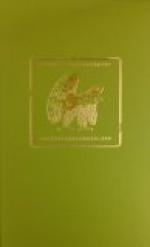“No.” It was Foster who answered. “No, but he was on his way out to the States at last, when the end came. I don’t understand it. It seems incredible that Weatherbee, who had won through so many times, handicapped by the waifs and strays of the trail,—Weatherbee, to whom the Susitna country was an open scroll,—should have perished as he did. But it was you who found him, Hollis. Come, tell us all about it.”
Tisdale shook his head. “Some other time, Foster. It’s a long story and not the kind to tell here.”
“Go on! Go on!” The urging came from many, and Banks added in his high, tense key; “I guess we can stand it. Most of us saw the iron side of Alaska before we saw the golden.”
“Well, then,” Tisdale began reluctantly, “I must take you back a year. I was completing trail reconnaissance from the new Alaska Midway surveys in the Susitna Valley, through Rainy Pass, to connect with the mail route from the interior to Nome, and, to avoid returning another season, kept my party late in the field. It was the close of September when we struck Seward Peninsula and miserably cold, with gales sweeping in from Bering Sea. The grass had frozen, and before we reached a cache of oats I had relied on, most of our horses perished; we arrived at Nome too late for the last steamer of the year. That is how I came to winter there, and why a letter Weatherbee had written in October was so long finding me. It was forwarded from Seattle with other mail I cabled for, back to Prince William Sound, over the Fairbanks-Valdez trail, and out again by the winter route three thousand miles to Nome. It was the middle of March when I received it, and he had asked me to buy his half interest in the Aurora mine. He needed the money to go out to the States.”
Tisdale’s voice broke a little; and for a moment he looked off through the open door. “Perhaps some of you remember I grub-staked him for a half share when he left the Tanana to prospect down along the Alaska Range. After he located, I forwarded him small amounts several times to carry on development work. I never had been on the ground, but he explained he was handicapped by high water and was trying to divert the channel of a creek. In that last letter he said he had carried the scheme nearly through; the next season would pay my money back and more; the Aurora would pan out the richest strike he had ever made. But that did not trouble me. I knew if Weatherbee had spent two years on that placer, the gravels had something to show. The point that weighed was that he was willing to go home at last to the States. I had urged him before I put up the grub-stake, but he had answered: ‘Not until I have made good.’ It was hardly probable that, failing to hear from me, he had sold out to any one else. From his description, the Aurora was isolated; hundreds of miles from the new Iditarod camp; he hadn’t a neighbor in fifty miles. So I forwarded his price and arranged with the mail carrier to send a




